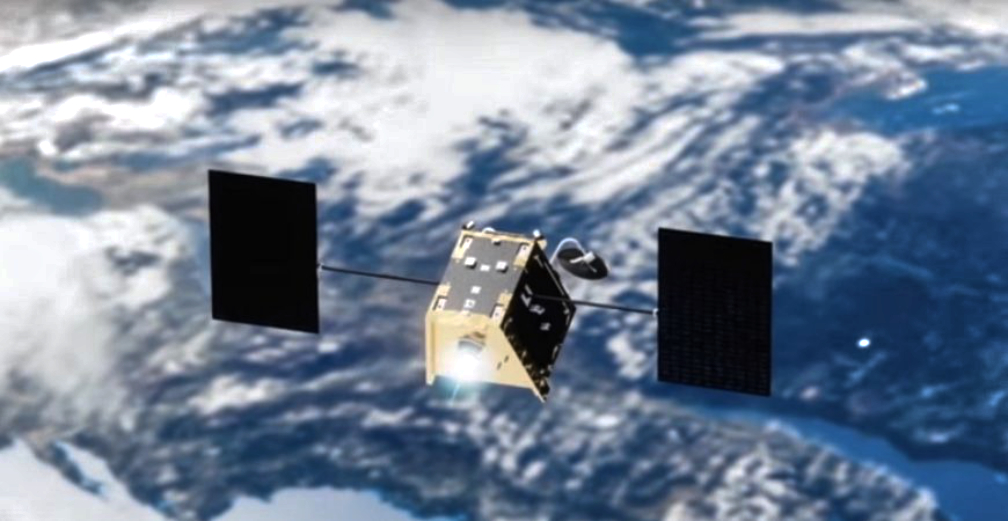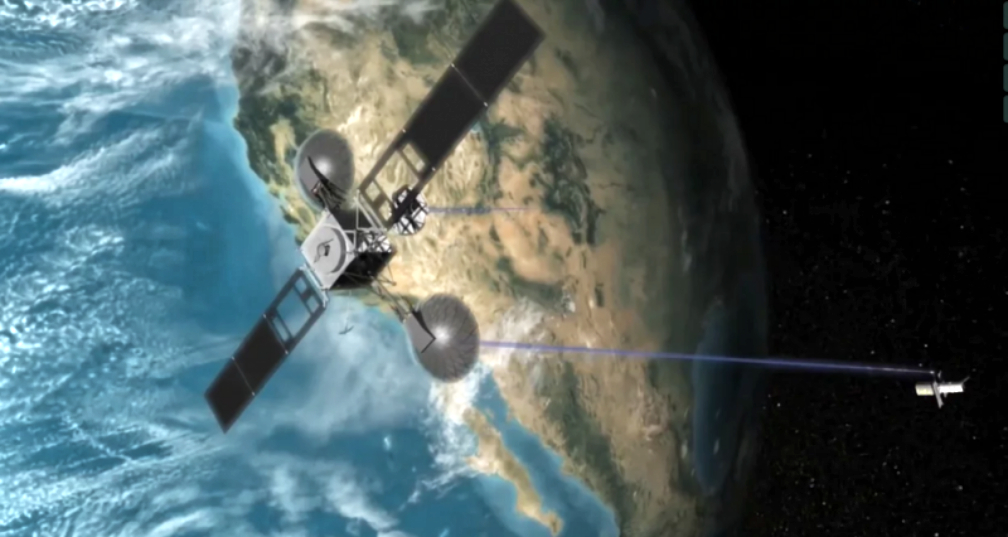
The UK government is widely reported to have joined a consortium that is bidding for bankrupt OneWeb’s satellite system — the UK reportedly put £500 million (or possibly $500 million) into the consortium for a bid on June 26th.
The UK’s interest in OneWeb is for a potential alternate space system to the EU’s Galileo GPS service, itself an alternate to the US and its well-known GPS (Global Positioning System) system.
However, there’s significant criticism of the move with various experts saying that OneWeb’s satellites – even with modifications – are not fit for a GPS purpose. OneWeb’s satellites are all in LEO of 1200 kms, while GPS craft operate at significantly higher altitudes. The US system has just 24 satellites to provide global coverage, plus a handful of in-flight back-ups, and they orbit at 20,300 kms. Galileo has just 27 satellites in its system plus three spares and orbiting at 23,222 kms.
OneWeb’s satellites, because of their much lower heights, need a far greater constellation to provide total coverage. The OneWeb scheme calls for a total of 900 satellites although the company has filed with the FCC for another 48,000 to complete its coverage and operation density for mass market adoption.
Airbus is currently involved in a 50/50 joint venture to build the OneWeb fleet from a factory in Florida. In a statement, Airbus said: “The OneWeb constellation could help address the UK’s future space requirements and with innovative thinking should further enhance the UK’s place at the forefront of satellite technology and applications. Airbus and the wider UK space ecosystem have the skills to build future capability and then drive export opportunities. We would look forward to supporting OneWeb in the next phase of their business and growing the UK contribution to this market changing business.”
It is also reported that Chinese interests have examined OneWeb’s assets; however, it is also seen that China would suffer some extreme roadblocks in terms of their bid(s).
“The fundamental starting point is, yes, we’ve bought the wrong satellites,” said Dr. Bleddyn Bowen, a space policy expert at the University of Leicester speaking to The Guardian. “OneWeb is working on basically the same idea as Elon Musk’s Starlink; a mega-constellation of satellites in Low Earth Orbit, which are used to connect people on the ground to the Internet. What’s happened is that the very talented lobbyists at OneWeb have convinced the government that we can completely redesign some of the satellites to piggyback a navigation payload on it. It’s bolting an unproven technology on to a mega-constellation that’s designed to do something else. It’s a tech and business gamble.
Giles Thorne, a research analyst at investment bank Jefferies, and a highly-regarded voice in satellite matters, was blunt, saying, “This situation is nonsensical to me. This situation looks like nationalism trumping solid industrial policy. Let’s give the government the benefit of the doubt: if the output the government wants is a UK-branded positioning system, a projection of UK power around the world and supporting the UK satellite industry base, then it is probably quicker and cheaper to smash the square peg of OneWeb into the round hole of a Galileo replacement than it is to do it from scratch.”
Sami Kassab, also considered an expert on satellite matters, in his Exane/BNPP bank’s note to clients, said that his list of potential bidders/buyers includes Eutelsat, Amazon, Inmarsat, Airbus and possibly Chinese players and stated that it is unlikely that SES and Space X will bid, as they already have a similar but more advanced infrastructure in place. He noted, “Eutelsat has no LEO broadband assets and acquiring OneWeb would make strategic sense but be financially risky as the ROI on this constellation is more than questionable (hence the Chapter 11). In our view, Eutelsat is unlikely to bid on its own but it could be part of a broader consortium including the French State (as suggested in the FT‘s article) and potentially Airbus (OneWeb spacecraft manufacturer). The support of Government funding would reduce the financial risk for any private bidder. We also believe that a failed attempt by Eutelsat/France to acquire OneWeb would increase the odds of a SES-Eutelsat merger as a European political response to the UK’s investment in New Space. Available economies of scale would be significant in our view.”
Chris Forrester continues his reporting at the Advanced Television infosite with a posting that reads…
First it was bad weather at the Cape which slipped the SpaceX June 23rd launch to June 25th, then June 26th, but then the Falcon 9 rocket with a cargo of 57 Starlink satellites – plus a few guest craft – was postponed again just 2 hours before the planned launch – even though the weather was good.
“Standing down from today’s Starlink mission; team needed additional time for pre-launch checkouts, but Falcon 9 and the satellites are healthy,” SpaceX wrote in an update on Twitter. “Will announce new target launch date once confirmed on the Range.”
The delay means that there are now launch pressures on Musk’s team because another Falcon 9 is due for launch on June 30th from a nearby pad to place a GPS III satellite – manufactured by Lockheed Martin – into orbit for the US Space Force. The GPS mission uses a rocket that has already flown 4 times before including two earlier Starlink missions.
This particular GPS satellite replaces an older craft in the 31-satellite set and provides improved accuracy as well as anti-jamming technology. The delayed Falcon 9 rocket for the Starlink mission is no slouch and has flown 4 times. No date has yet been set for the launch attempt.
SpaceX has previously said they would likely manage 24 rocket launches annually and this next batch will be the 10th launch of 57 Starlink craft. This will be the 10th launch of Elon Musk’s Starlink satellites and take the total in orbit to almost 600.
Musk says that his Starlink service will debut “later this summer” first serving Alaska and the northern US and Canadian regions. He has said that he only needs about 400 satellites in orbit to provide a basic ‘beta’ service, and that a fleet of 800 would provide “moderate” coverage for public subscribers/users.
A third Forrester story reveals that the dispute between Intelsat, itself in Chapter 11 bankruptcy protection, and the International Telecommunications Satellite Organisation (ITSO) and payments claimed as owed by Intelsat to ITSO, was due to be heard by the bankruptcy court on June 30th and that legal event has now been delayed.
It will now be heard on July 28th during the next ‘Omnibus Hearing’ by the court.
ITSO, an intergovernmental organisation comprising 149 member states, supervises Intelsat’s public service obligations. ITSO wanted the court to order Intelsat pay up outstanding cash to fund its activities.
Some of the ITSO claims are denied by Intelsat which says that ITSO’s obligations do not extend – for example – to funding expensive trips to Davos and the World Economic Forum as well as other unwarranted expenses.
Intelsat says that ITSO’s extra claims are without merit and should be dismissed.
Reporting by journalist Chris Forrester @ the Advanced Television infosite. 

